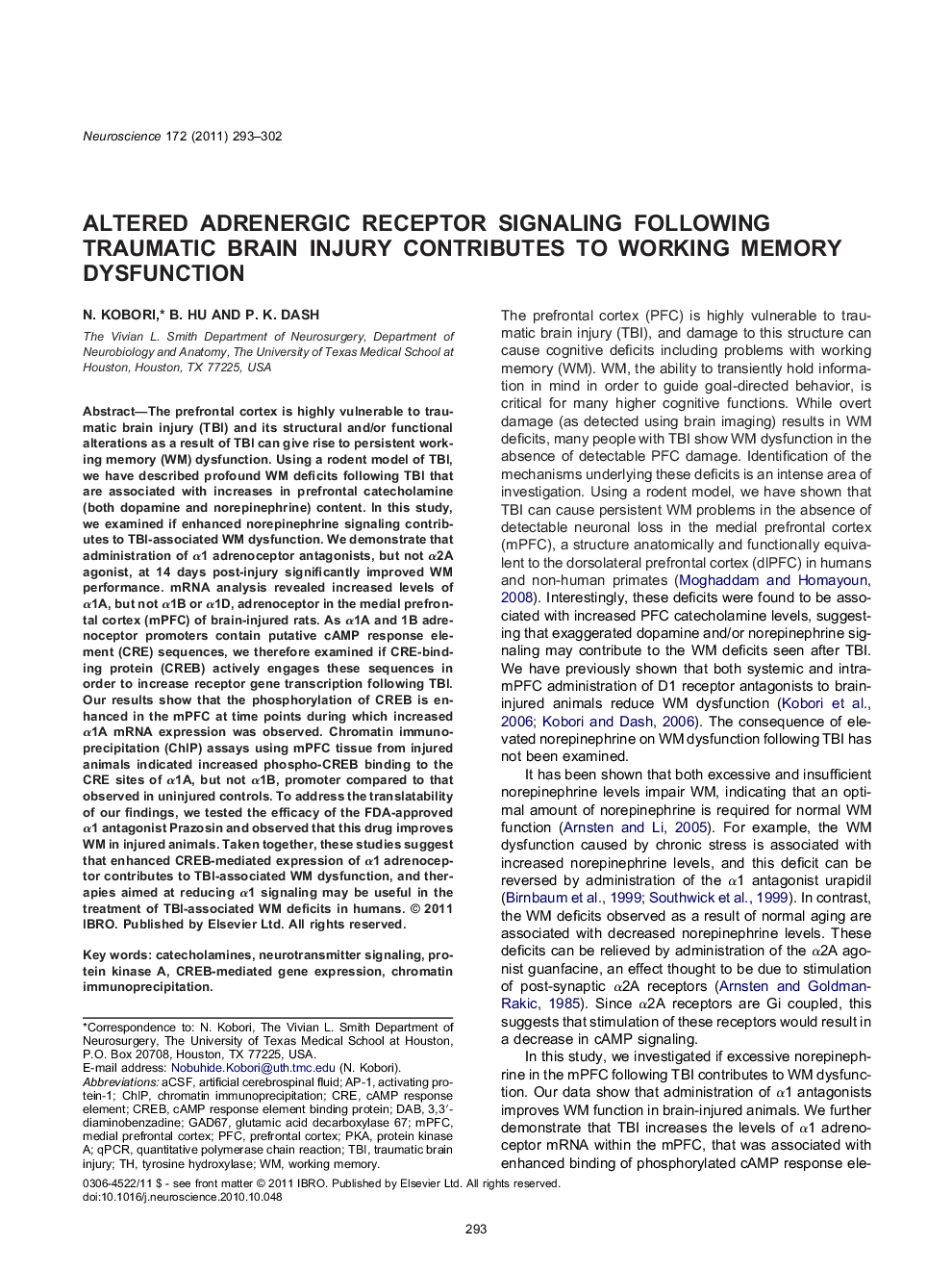| کد مقاله | کد نشریه | سال انتشار | مقاله انگلیسی | نسخه تمام متن |
|---|---|---|---|---|
| 4339049 | 1614904 | 2011 | 10 صفحه PDF | دانلود رایگان |

The prefrontal cortex is highly vulnerable to traumatic brain injury (TBI) and its structural and/or functional alterations as a result of TBI can give rise to persistent working memory (WM) dysfunction. Using a rodent model of TBI, we have described profound WM deficits following TBI that are associated with increases in prefrontal catecholamine (both dopamine and norepinephrine) content. In this study, we examined if enhanced norepinephrine signaling contributes to TBI-associated WM dysfunction. We demonstrate that administration of α1 adrenoceptor antagonists, but not α2A agonist, at 14 days post-injury significantly improved WM performance. mRNA analysis revealed increased levels of α1A, but not α1B or α1D, adrenoceptor in the medial prefrontal cortex (mPFC) of brain-injured rats. As α1A and 1B adrenoceptor promoters contain putative cAMP response element (CRE) sequences, we therefore examined if CRE-binding protein (CREB) actively engages these sequences in order to increase receptor gene transcription following TBI. Our results show that the phosphorylation of CREB is enhanced in the mPFC at time points during which increased α1A mRNA expression was observed. Chromatin immunoprecipitation (ChIP) assays using mPFC tissue from injured animals indicated increased phospho-CREB binding to the CRE sites of α1A, but not α1B, promoter compared to that observed in uninjured controls. To address the translatability of our findings, we tested the efficacy of the FDA-approved α1 antagonist Prazosin and observed that this drug improves WM in injured animals. Taken together, these studies suggest that enhanced CREB-mediated expression of α1 adrenoceptor contributes to TBI-associated WM dysfunction, and therapies aimed at reducing α1 signaling may be useful in the treatment of TBI-associated WM deficits in humans.
Research Highlights▶ TBI increases α1A, but not α1B or α1D, adrenoceptor mRNA levels in mPFC. ▶ TBI increases the phosphorylation of CREB predominantly in GABAergic interneurons. ▶ TBI enhances the recruitment of phospho-CREB to the α1A promoter. ▶ Systemic administration of α1 antagonists improves working memory in injured animals.
Journal: Neuroscience - Volume 172, 13 January 2011, Pages 293–302